Don’t you just love going to enjoy holidays and staying in a marvelous villa or hotel that boasts glamorous Mediterranean décor, with beautiful large gardens and open-plan living spaces, with some simplistic, nature-inspired accessories that create beachy, relaxing vibes? You can get this auspicious feeling at your home too.
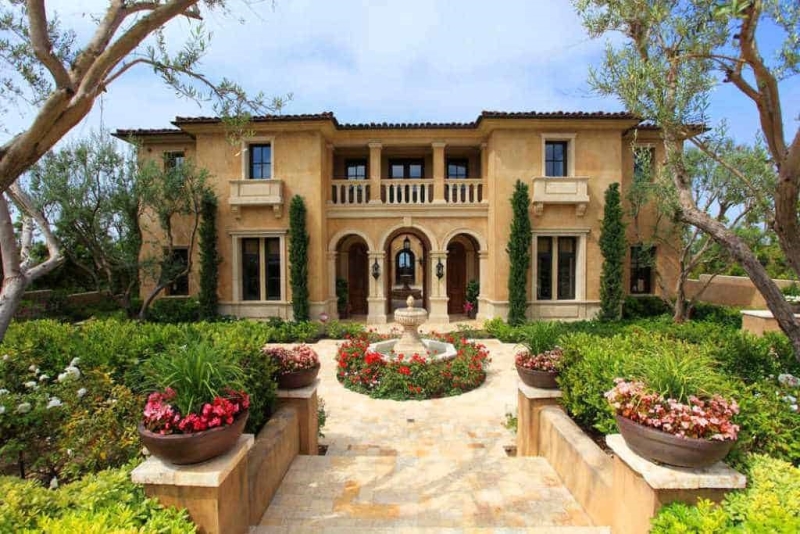
By decorating your yard or garden in the Mediterranean style, you can enjoy that holiday feeling at your home. You can add colors to your garden and add a bit refreshing feel, let’s get together with a few ideas about how you can overhaul and update your garden with a Mediterranean style.
Table of Contents
1. Don’t forget succulents
Desert plants and succulents are normal highlights in the Mediterranean garden, outgrowing old stone dividers and rockwork. In the event that you have a rock hole between your home and your clearing, a segment of sempervivums or different succulents will mollify the line wonderfully.
2. Water features and pergolas
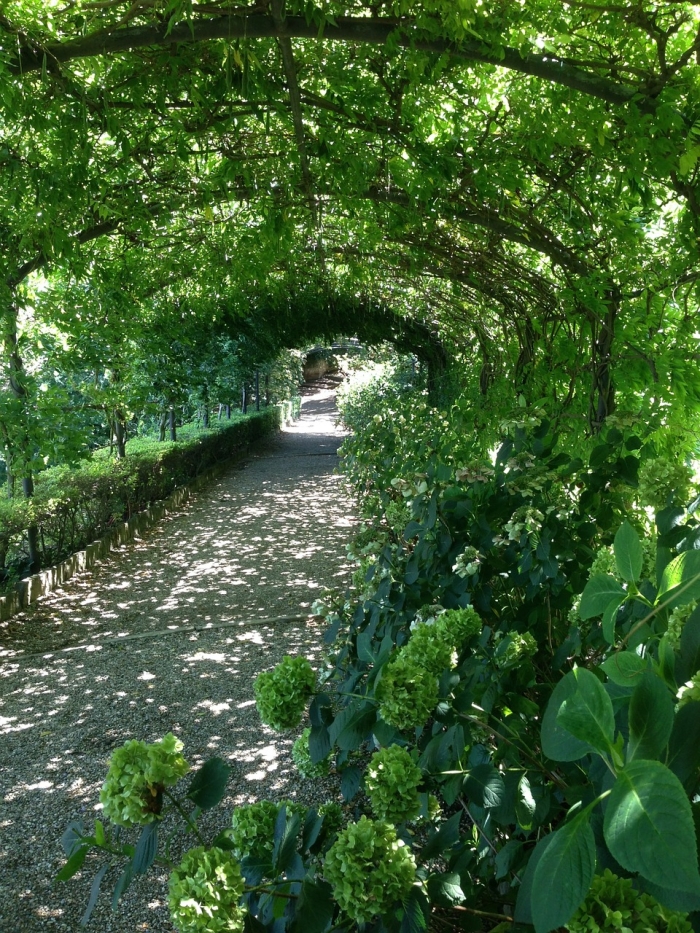
Image source: pixabay.com
Usefulness is colossally significant with regards to Mediterranean gardens and insurance from components, through cooling water and shade, is an unquestionable requirement. On the Mediterranean coast, numerous gardens need shelter from the immediate sun, so you will probably see a ton of coverings, pergolas, and water highlights. Pergolas work really hard regarding sheltering gardens from solid breezes and, if your garden is neglected, they also offer protection.
Assuming you have space, pergolas that are hung in brilliant climbing plants, like ipomoea and jasmine, are an unquestionable requirement. Yet, in the event that you have a smaller garden, you might need to consider utilizing small passageway entrances, or even only some high fencing, for the look.
3. Use terracotta planters
Think about dazzling pink or red geraniums tumbling over old terracotta or stone pots, or if you’ve restricted space, connect some smaller terracotta grower to a south-bound divider and fill them with the following dry season darlings that will not need perpetual watering.
Then again, make an element out of tremendous Grecian urns deliberately positioned in borders or as stand-alone highlights toward the finish of walkways or in the focal point of small courtyards.
4. Relaxed outdoor dining
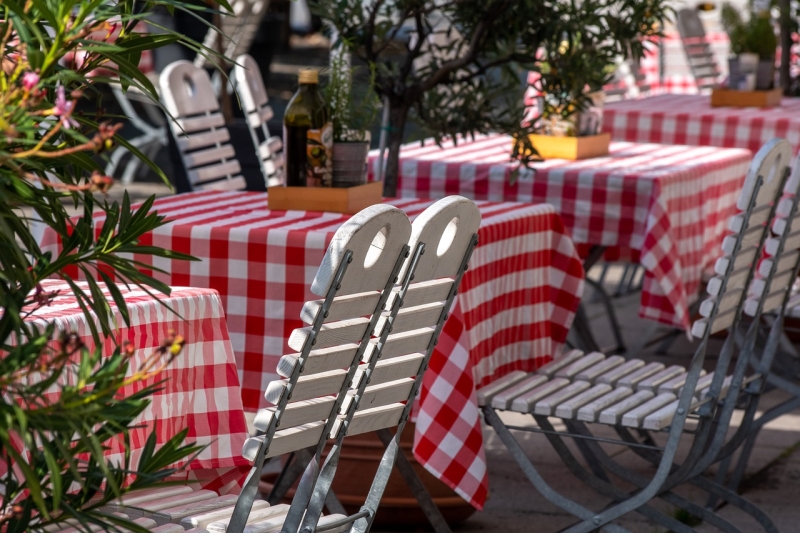
Image source: pixabay.com
In the Mediterranean, it is right around a criminal offense to not have an outdoor dining region. Imparting food to loved ones is something that sits at the core of long-standing Mediterranean practice and while we might not have as great a climate as in the Med, large numbers of us actually treasure summer BBQs and unwinding in the garden on long summer nights.
You ought to, in a perfect world, pick an exemplary dining set. Cast aluminum functions admirably as it is climate safe so can be forgotten about over winter. In the event that you don’t have space for an enormous dining set, a small bistro set will work comparably well and regularly is comprised of simply an end table and seats.
Assuming you have greater space, ensure that there aren’t any segments of your garden which can be delighted in – Mediterranean gardens regularly have numerous sorts of seating dabbed around ways and walkways.
5. Consider gravel or cool tiles
Gravel gardens are ordinary in the Mediterranean and in this country, the gravel surface goes about as a perpetual mulch that will help forestall seed seedlings and monitors dampness.
Pick a sunny, sheltered spot and set up the dirt, raking it level and then spreading 5cm (2in) gravel over the surface.
Plant sparingly – don’t cover the gravel surface with plants. They can be set to a great extent and may be adorned with stone or terracotta planters or an old wooden or stone seat.
6. Create shade
Any Mediterranean garden deserving at least some respect should offer shade during the warmth of the day. Consider how you will accomplish that normally. Maybe develop climbers that adoration heat, for example, grapevine and trumpet plant, over a pergola with customary seating under. Use Carports or Metal Garages for the shade and shelters.
7. Sociable seating
The way into all-climate garden furniture is strong and it merits putting resources into a respectable weatherproof mix set. Their Swinging Day Bed has been especially mainstream. Decorate daybeds and outdoor couches with beautiful adorned blankets and pads.
8. Plant selection for the Mediterranean garden
As we already mentioned, perennials succeed in a Mediterranean environment, as simple to develop in dry and helpless soil conditions.
A Med garden is, most importantly, a fragrant garden: sage, thyme, rosemary will satisfy both your smell and your taste buds, as you can utilize them in the kitchen… They’re not tall plants, and they are ideal for edging strips or in a little stone garden, on very much depleted and not very muggy soil.
You can likewise join them by succulents, similar to sedums with their innumerable assortments, or aeoniums and aloe plants whose delightful flowers will make a superb winter adornment.
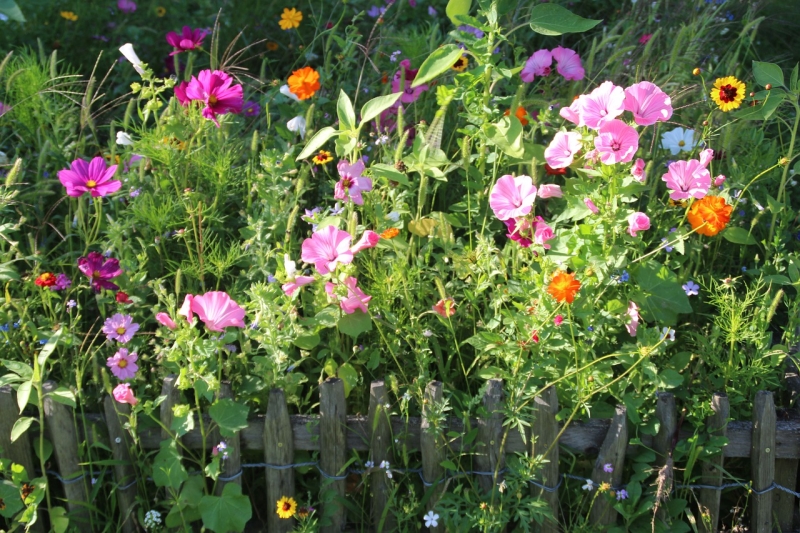
Image source: pixabay.com
Citrus trees: If the climate permits you, set out to plant orange, lemon, or tangerine trees – ideally close to the house, to shield them from the virus winds. Envision opening your windows and letting the exquisite fragrance of orange trees attack your room during blossoming season…
Oleanders make glorious fences: They bear loads of flowers in changed tones: from white to fuchsia and everything in the middle, in addition to some more – an eminent range available to you. An extra benefit is that the blossoming season may last as long as a half year.
The silver-green foliage and the turned trunk of olive trees are, obviously, the Mediterranean landscape’s brand name. Despite commonly acknowledged thoughts, olive trees can develop basically anyplace, as certain species can withstand temperatures well under nothing.
One thing to recollect: olive trees don’t endure stale waters; very much depleted, pebbly, light soil, just as a most extreme measure of sunlight, are fundamental for their endurance. During the initial three to five years you should be cautious about ice; covering the roots in the colder time of year is a decent precautionary measure in cool climates.

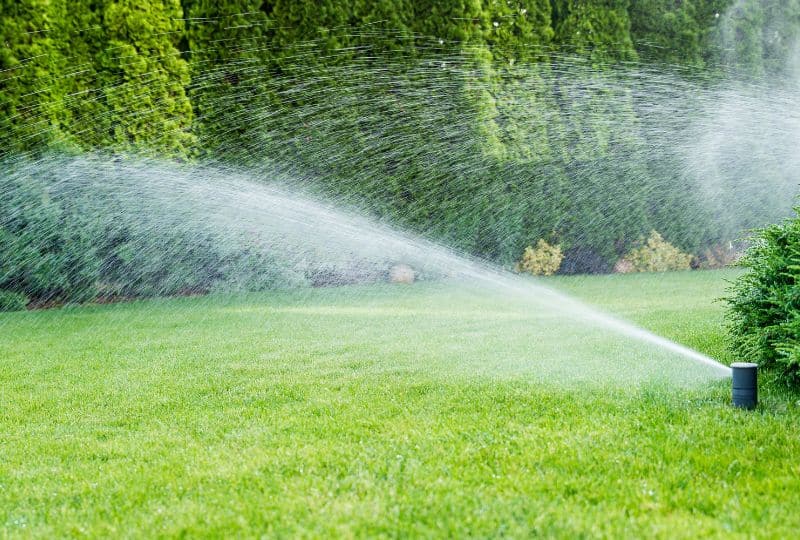
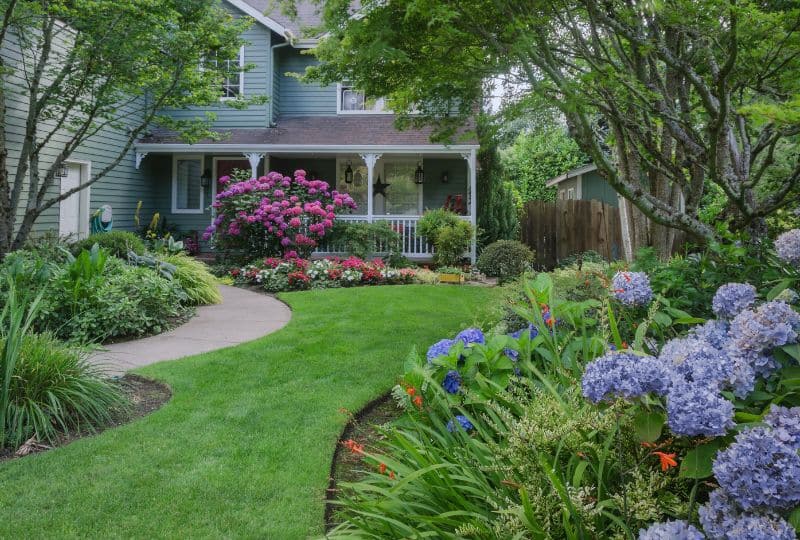
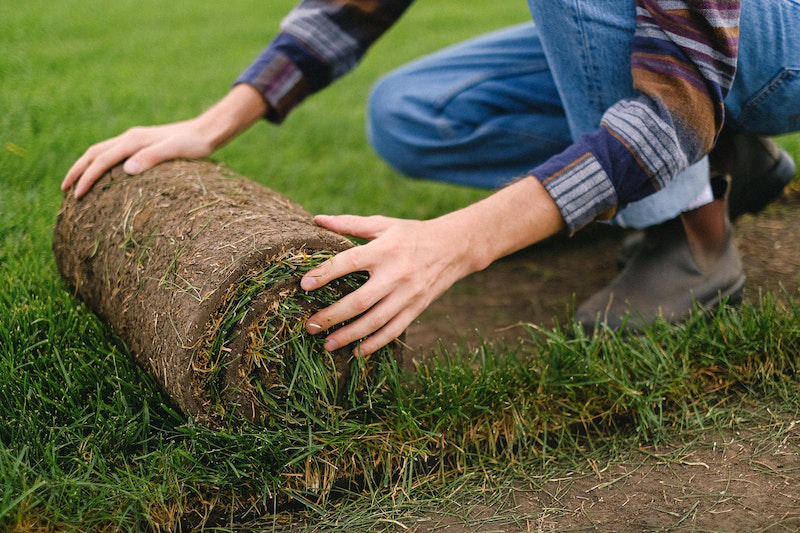
Leave a Reply